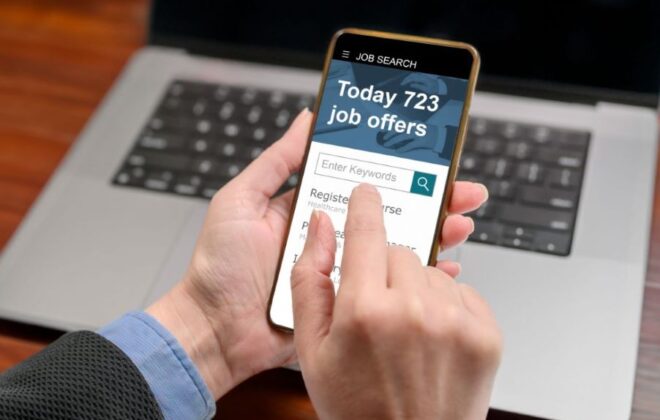
Tactics To Get Jobs In Australia
Tactics you employ to get jobs in Australia are different to what you’d use in other countries like England, China, India or America.
Because of this, it’s important to know what goes into a successful Australian job search strategy. The steps listed below give an outline of how you can develop strategies to get a job in Australia.
Getting a job in Australia can be incredibly time consuming. Your strategy should include a combination of traditional online applications as well as networking.
Strategies For You To Get jobs in Australia:
Page Contents
Investigate opportunities
Ideally, before migrating, you should investigate what the job market is like for your particular field.
Australia is a vast country, and where IT/mining/mechanical engineering applicants (for example) may not be in high demand in one state, however, they may be in demand in another.
Job sites like SEEK are a useful resource here, as you’ll be able to see which cities have the most openings in your field.
You’ll need to spend hours on SEEK looking at the different job vacancies by cities to see where there are more jobs. For example:
- construction in Melbourne is strong at the moment (good for civil engineering and construction management) – whereas mining in western Australia is quiet
- financial services are generally softening – however, there are more opportunities in Sydney
- Tasmania is looking to attract more skilled migrants, so competition with local candidates could be less there.
These are all important things to consider when trying to get jobs in Australia as soon as possible.
It’s also a good idea to start building links with recruiters. Check out the course of our free careers (register on the Career Success Australia homepage) for more information on how to do this.
Local experience
One of the main things that Australian recruiters and hiring managers will do is look at where your professional experience took place, and how long you worked there.
If you have ten years of experience overseas, this may be enough to impress them. However, we’ve worked with job seekers with over 10 years’ experience from India, the Middle East and Malaysia who have struggled to break through to get a job in Australia.
Hiring managers are drawn to candidates who have local experience. Unfair – but true.
Local experience shows them that you’re competent in the Australian workplace. If you’re a recent graduate, have little or no Australian experience or have an employment gap, an internship will help you overcome these issues.
Networking
Networking is huge in Australia. When it comes to finding a job here, often it’s a matter of who you know. People in your networks might recommend a company that’s hiring, recommend you to a hiring manager, or even directly offer you a job.
How can I network to get a job in Australia?
As a starting point, tap into your existing networks in Australia. These are friends, colleagues and relatives who are working in Australia – white collar/blue collar – it doesn’t matter. Referrals are key.
Talk to them about the type of work you are looking for and ask them to make enquiries at their place of work with HR as well as colleagues from different departments who are ‘key decision-makers’.
But I don’t have any networks in Australia – what should I do?
If you don’t have networks…you have to start building them! But where do I start?
Heard of LinkedIn?
That’s where you can find thousands of potential hiring managers and recruiters. It’s the most effective tool to network with key decision-makers who may be looking for someone with your skills and experience.
You can’t just approach people on LinkedIn and ask if they have vacancies – you need to build trust. You need to build a relationship.
What else can I do when looking for jobs in Australia?
Research is the key. Go through LinkedIn, yellow pages and Google and search for keywords related to your area of work.
For example, a Civil Engineer who has recently migrated to Sydney might search Google for terms like:
- ‘construction companies in Sydney’
- ‘civil engineering firms NSW’
- ‘structural design company Sydney’.
From these search results, the person can develop a target list of companies.
A target list of companies – what should I do now?
Now that you have your list of target companies, you need to find the key decision-maker within each company. This can be someone from HR, a Director or GM or head of a department i.e. Civil Engineering Manager. Use LinkedIn to see if you have any common connections and then try and get an introduction. Connect with them and find their email and write to them directly.
If you do this with 50 potential ‘targets’ you may end up getting a job interview with one or two! That’s a fantastic result. Far better than lodging 100 applications through SEEK for no results.
Go direct to the decision maker to get job interviews in Australia
Customise your job applications
Many people submit the same resume and cover letter for every application they submit, and they don’t have much success.
Australian recruiters and hiring managers will be searching for candidates who match the very specific requirements of the role.
Few jobs in Australia have openings are the same, so what works for one application won’t work for another. Make sure to read through the job description carefully, making sure that you’ve addressed what it needs using strong examples.
Key things to remember:
- Look around Australia to see where your field is most in demand
- Get local experience as soon as possible – an internship in your field is useful for this
- Make connections, both professionally and personally – using LinkedIn
- Search for jobs in different places – don’t just limit yourself to SEEK, etc.
- Every resume and cover letter should be adapted to suit the role you’re applying for
If you’re job hunting in Australia and need help feel free to get in touch so we can help.
We wish you all the best in your job search!
Careers Team, Career Success Australia





Thanks for the sharing.
I graduated with Master degree of Finance and have been working in banking sector (Melbourne) for past 4 years as Credit and Compliance analyst.
I recently quit my job in one of big 4 as I didn’t enjoy the working environment there and because the repetitive,operational work is really not my thing.
My local experience has been always analytical and sitting at back office within 9-5 working hours but I am now looking for a career change of doing something more people focused and more interactive and less repetitive.
I have been not working for 5 weeks now and started my job application for 2 weeks and had contacted all local recruiters and applied for about 20 jobs through Seek and CareerOne. Most recruiters don’t even get back to my voicemail or email and some said just go apply through website.
I have not had any interview so far and going to do some follow up calls.
I am in need of career change coach and help with networking to find hidden jobs and build relationships in my industry.
Hope to hear from you soon.
Dear Ha, thanks for getting in touch.
It sounds like you have some excellent experience and qualifications. Several of my friends have left Big 4 companies as it wasn’t a good fit. Some of my friends love working at a Big 4! So it all depends on what drives you and makes you happy at work.
I will send you an email and we can talk further.
Cheers
Naren